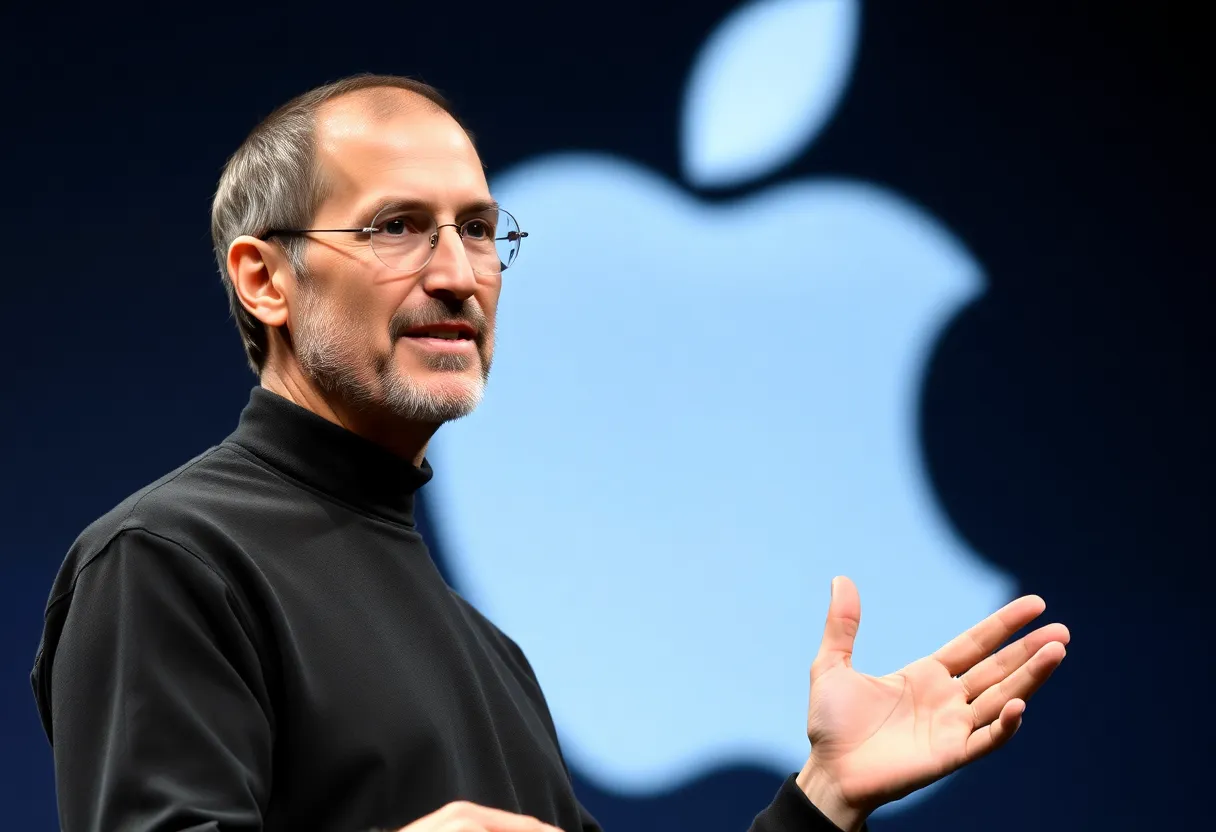

Steve Jobs showcasing his marketing brilliance at an Apple event.
Article Sponsored by:
Real Internet Sales is a digital marketing agency located in Columbia, South Carolina. We specialize in website design and development, SEO, social media management, online advertising, AI integration, and workflow automation. Our services also include affiliate marketing and digital strategy.
Real Internet Sales also offer specialized programming for real estate firms, using IDX and RETS feeds to automatically populate MLS properties on their websites for improved property listings and sales. We also work with clients in the restaurant, tourism, and e-commerce industries to enhance their digital presence and streamline operations.
Cupertino is synonymous with innovation, and much of that can be traced back to the late Steve Jobs, the co-founder of Apple Inc. From the smooth design of the iPhone to the enticing marketing campaigns, Jobs had a knack for connecting with consumers in a remarkable way. Think back to the famous “Think Different” campaign – it resonated so deeply because it wasn’t just about selling products; it was about selling a vision, a dream!
Jobs understood something fundamental about human psychology: people connect with ideas, not just products. Instead of trying to convince everyone that Apple was the best choice, he aimed to attract those that shared a passion for innovation and creativity. “Marketing is about values,” he once said. His strategic approach was personal and engaging, aiming to inspire a generation of tech enthusiasts. This way of thinking wasn’t just brilliant; it helped solidify Apple as a brand rooted in aspiration.
Jobs took a page from the playbook of brands like Nike. During the rise of athletes like Michael Jordan in the ’80s, Nike thrived by placing stars front and center. They didn’t advertise their shoes with technical specifications; instead, they celebrated the inspiring stories of these athletes. In much the same way, Jobs sought to align Apple’s brand with creativity, elegance, and excellence. Imagine how different the landscape might be if he had approached marketing like the dairy industry did, trying to force the notion that milk is essential. It wasn’t until they embraced the “Got Milk?” campaign, showing celebrities with mustaches, that sales took off.
When Jobs returned to Apple in 1997, the company was struggling. He knew he had to strip away the clutter and refocus on what truly mattered. “Don’t market products,” he encouraged his team, “market dreams.” This refreshing shift in strategy was pivotal for Apple. By repositioning Apple as a company for those “crazy enough to think they can change the world,” he reignited passion within the Apple community and captured the hearts of both existing fans and new consumers.
Perhaps one of Jobs’ most significant contributions was his ability to weave storytelling into marketing. When launching products, he didn’t just present a new gadget; he told a story. His charisma and the dramatic flair he brought to events created an aura of excitement that was infectious. Remember the iPhone launch? It wasn’t just a phone; it was framed as a revolutionary tool that would change how we interact with the world. Jobs understood that an emotional connection—capturing hearts and imaginations—was the pathway to brand loyalty.
Jobs had a clear vision for revitalizing Apple. He was determined to go back to roots—where the company was focused on enriching people’s lives with innovative technology. He famously stated that “the products we sell are just tools to help people achieve their dreams.” It was about creating an experience that transcended hardware and software. In harnessing this vision, he didn’t just bring Apple back from the brink; he elevated it to unprecedented heights.
Not only did he manage to revive Apple, but he also ensured that they remained one step ahead of competitors. Take the iPod, for instance. While creating it, Jobs recognized the growing trend of mobile phones incorporating music capabilities. He understood that the future lay in convergence, which is why the iPhone, integrating a music player with an efficient phone, was a game changer.
Even after his passing, Jobs’ strategies continue to influence not just Apple but the entire technology sector. The idea of marketing as storytelling, the focus on emotional connection, and creating a community around your brand resonates with companies today. It’s all about making people feel something—whether excitement, nostalgia, or inspiration.
In a world drowning in noise, Jobs taught us the importance of cutting through the clutter by emphasizing values and purpose. Ultimately, it’s about sparking something profound in your audience. Apple may have grown into a massive corporation, but at its core, it still aims to challenge the status quo. Steve Jobs didn’t just market products; he offered a vision of a world filled with possibility, forever changing the landscape of innovation.

7001 St Andrews Rd #329 ,
Columbia, SC 29212,
United States
Phone: (+1) 803 708 5514
News Summary South Carolina faces a challenging week with wildfires raging, particularly in the Carolina…
News Summary Residents of Columbia and Lexington Counties are being urged to prepare for severe…
News Summary On March 7, 2025, Columbia, South Carolina, witnessed its first execution by firing…
News Summary A peaceful community in Horry County was shaken by a shooting incident that…
News Summary Rusty Harris has transitioned from Enbridge Gas North Carolina to lead Enbridge Gas…
News Summary On January 30, 2025, the South Carolina Manufacturers Alliance launched the 2025 Vision,…